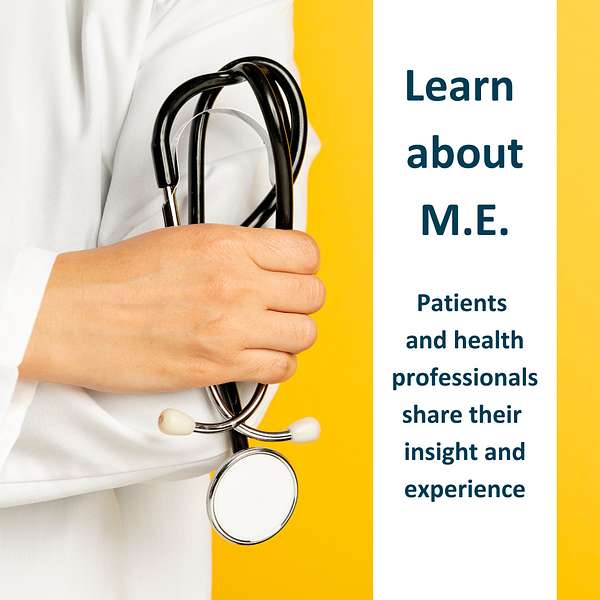
Learn about ME
IMPORTANT Learn about M.E. podcasts contain general information about ME/CFS shared by professionals and individuals with lived experience. This is not medical advice, and should not be treated as such. You must not rely on the information on this website as an alternative to medical advice from your doctor or other professional healthcare provider. Any symptom management approach must be considered on a case-by-case basis by an experienced medical professional.
Learn about ME
Episode 9 - Learn About M.E. and GP Prescribing
Use Left/Right to seek, Home/End to jump to start or end. Hold shift to jump forward or backward.
Our ninth episode in the Learn About M.E. series is about GP Prescribing for people with M.E. In this episode, Dr Aileen Billsdon-McGrane, a GP, discusses what GPs need to consider when they are prescribing to support people to manage their symptoms of M.E. We also hear from Kirstie Mitchell who has a diagnosis of M.E.
Dr Billsdon-McGrane suggests GPs need to take a holistic approach to managing M.E. and that any management plan needs to be wider than just prescribing medication. Any plans need to include how people pace themselves, manage their energy levels, and support to live with a chronic illness and the impact it has on their life, their families, and their finances. Medication cannot fix this condition but can have a role to help to manage the symptoms.
It is highlighted that many people with M.E. can also have Postural tachycardia syndrome (PoTS), when their heart rate rises very quickly after getting up from sitting or lying down resulting in palpations or dizziness. PoTS can be managed with a medication that GPs are familiar with from other conditions. Often people can experience symptoms around allergies too such as skin or gut problems, and intolerances with food that sets off symptoms. Symptoms can be helped by antihistamines or mast cell stabilisers.
Referrals to specialists may confirm that there is no other serious condition underlying but may not be able to offer a solution or reassurance to people with M.E. This is because M.E. affects multiple systems in the body. Therefore, it is important that GPs learn more about and understand the patterns of presentation that might be seen in M.E. to better address its challenges and complex nature, which can have a devastating impact on people’s level of functioning.
Building trust by dedicating time to actively listen to individuals and understanding their expectations regarding medication can lead to better outcomes. The timing of starting medication can have an impact on how successful it will be. Opting to start treatment during periods with minimal external pressures, such as avoiding times of high stress or significant upcoming events like Christmas or important birthdays, may enhance its effectiveness in alleviating symptoms.
GPs may benefit from discussing people’s understanding of how they are managing energy to avoid boom and bust as people need to be at a stable baseline before people can do more activity. It can be best to start with how to do less and accept the limitations they have because of M.E. GPs can learn more about how to diagnose and manage the symptoms of M.E. through accessing this free CPD module on M.E. Two of the assessment questions in the module relate to prescribing.